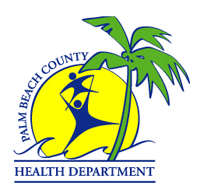A raccoon that fought with a black Labrador named Duke and was killed by the dog’s owner Wednesday, July 31 has been confirmed rabid by the Florida Department of Health State Laboratory.
Individuals in the area west of State Road 7 between Lantana and Lake Worth roads should avoid contact with any wild, stray or other wildlife.
According to Palm Beach County Animal Care & Control reports, Duke fought with the raccoon and sustained a small puncture wound on his neck. The owner, seeing the encounter, was able to kill the raccoon with shots from a BB gun. The owner called Animal Care & Control, which bagged the carcass and sent it for testing.
Duke is current on his rabies vaccines and will be in home quarantine for 45 days as a precaution. There was no known human exposure.
Rabies is a deadly viral disease that can be prevented but not cured. The virus attacks the nerves and brain tissue of warm-blooded animals, including people. If exposed, individuals must begin a series of rabies shots within 10 days of exposure to maximize prevention of the disease.
All citizens in Palm Beach County should be aware that rabies is present in the wild animal population, and domestic animals are at risk if not vaccinated. The public is asked to maintain a heightened awareness that rabies is active in the area. Animal Care & Control has placed informational flyers in the neighborhoods where the bite took place.
An animal with rabies could infect other wild animals or domestic animals that have not been vaccinated.
All domestic animals should be vaccinated against the rabies virus, and wildlife contact should be avoided, particularly with raccoons, bats, foxes, skunks, otters, bobcats, wild cats, wild dogs and coyotes.
Animal Care & Control offers the following further advice:
• Keep rabies vaccinations up to date for all pets.
• Keep pets under direct supervision so they do not come in contact with wild animals. If your pet is bitten by a wild animal, seek veterinary assistance immediately and contact Animal Care & Control at (561) 233-1200.
• Call an animal control agency to remove any stray animals from the neighborhood.
• Spay or neuter pets to help reduce the number of unwanted pets that may not be properly cared for or regularly vaccinated.
• Do not handle, feed or unintentionally attract wild animals with open garbage cans or litter.
• Never adopt wild animals or bring them into your home.
• Teach children never to handle unfamiliar animals, wild or domestic, even if they appear friendly.
• Prevent bats from entering living quarters or occupied spaces in homes, churches, schools and other areas, where they might come in contact with people and pets.
For more on rabies, visit the Palm Beach County Health Department at www.pbchd.com.








